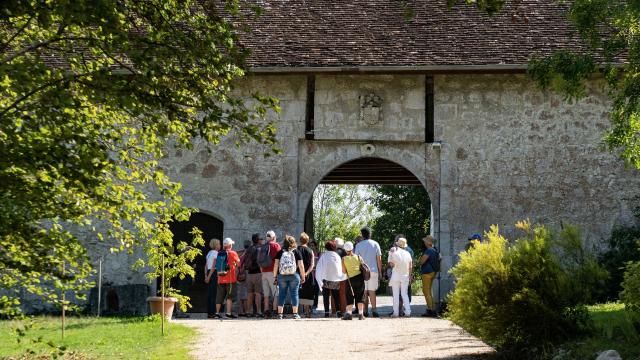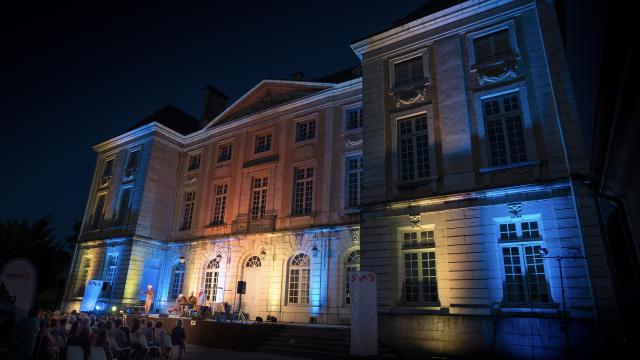Henry Dunant was born on May 8, 1828 in Geneva.
The Dunant family descended from Protestants from Languedoc, refugees in Geneva after the revocation of the Edict of Nantes in 1685, by Louis XIV.
Two activities led Henry Dunant to cross the borders of Switzerland:
- Through his duties as international secretary of the Christian Union of Young People of Geneva, he came into contact with Christians from all over Europe, but especially from France.
- Through his apprenticeship in banking, he discovered the Algerian markets, then dependent on the Second Empire.
Moreover, the whole family tradition was then turned towards the West and especially France: the grandfather, Bernard, had bought in 1793 the domain of the Chèvrerie in Culoz. The uncle, David, had married a Savoyorde woman despite the difference in confession. The father, Jean-Jacques, had made his entire career in Marseille, in the import-export.
It was in Culoz, on April 26, 1859, that Henry Dunant, aged 31, of Swiss nationality, asked to be naturalized French. In application of article 22 of the law of December 15 and 20, 1790 and as a descendant of “refugees because of religion”, Henry thus asserts his right to reinstatement.
The fact that Henry Dunant chose the town hall of Culoz to acquire French nationality can be explained by different reasons.
First, there is the domain of La Chèvrerie where the family spends its vacations and supplies itself with wine.
At Culoz, Henry is considered a notable.
Above all, there is the railroad that connects since 1859 precisely Geneva to Paris or Marseille, via Culoz, which then becomes a privileged place of passage to the French capital and to the African colony.
Two months later, on June 24, 1859, when the French and Sardinian armies were waging war against Emperor Franz Joseph for the independence of Italy, Henry Dunant sought an audience with Emperor Napoleon III in Castiglione, a small village that was a fallback position for the Franco-Sardinian fighters of Solferino.
The medical aid, overwhelmed, helpless, conveyed the wounded and dying to Castiglione. Spontaneously, Henry Dunant offered his help by trying to relieve the suffering. The horror of the carnage causes him a trauma.
In 1862 he publishes a memoir addressed to the political and military leaders of Europe, entitled “A memory of Solferino”. In this work, he testifies to what he saw and asks two important questions that reveal his concerns:
- Why not neutralize the health services in wartime?
- Why not create, in all countries, voluntary civilian associations for the relief of wounded soldiers?
In 1863, the founding of the International Committee for Wounded Military Relief (the 1st name of the International Committee of the Red Cross) prompted Henry Dunant to take advantage of his French nationality to solicit Emperor Napoleon III and his other relations and to urge them to create a French committee.
He then took the initiative of convening, on May 25, 1864, a constituent general assembly which he convinced to create a “French central committee of the society for the relief of the wounded in the military,” the future French Red Cross. He assigns as 1st task to this committee to form sections throughout France.
Consigning his fortune to his cause, Henry Dunant did so much to defend it that in 1864 is signed the Geneva Convention, which sets the fate of wounded and sick prisoners who must be treated, the status of health facilities and their staff who must be respected, the sign of health services: red cross on white background.
Less than a week after the declaration of war between France and Germany, on July 25, 1870, Henry Dunant addressed Baron Brénier, one of the honorary vice presidents of the French Red Cross, to urge him to question the Senate on the application of the Geneva Convention, of which France was one of the twelve signatories.
This first approach as well as his requests to the Empress Eugenie and General Trochu failed.
However, after approaches to the Government of National Defense that succeeded the Second Empire after the defeat of Sedan, on September 1, 1870, Henry finally obtained a proclamation in the Official Gazette recalling the provisions of the Geneva Convention, which allowed the sign of the Red Cross to become an emblem of protection. Red Cross societies, recognized by the States, were created all over the world and were responsible for helping the military health services.
His humanitarian action redoubled again with the Commune and the civil war that broke out between Royalists and Communards, at the capitulation of Paris on January 28, 1871 facing Prussia. He then undertook representations to the Central Committee of the Commune and to the Prussian occupation authorities, with the aim of protecting civilians. He even met with Adolphe Thiers on May 11, 1971 to try to soften the repression of the Versailles government against the Communards. The latter remained intractable and, from May 21 to 28, the ruthless repression on the part of the “Versailles” troops, commanded by Mac-Mahon, resulted in 50,000 deaths, killed in action or executed.
In 1901, Henry Dunant received the Nobel Peace Prize for his work and material aid from the Swiss government.
At his death in 1910, he was considered a benefactor of humanity.
The Culoz College bears his name.












